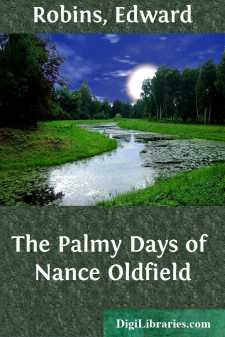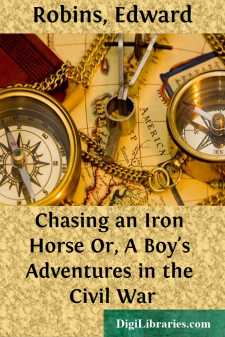Categories
- Antiques & Collectibles 13
- Architecture 36
- Art 48
- Bibles 22
- Biography & Autobiography 813
- Body, Mind & Spirit 142
- Business & Economics 28
- Children's Books 17
- Children's Fiction 14
- Computers 4
- Cooking 94
- Crafts & Hobbies 4
- Drama 346
- Education 46
- Family & Relationships 57
- Fiction 11829
- Games 19
- Gardening 17
- Health & Fitness 34
- History 1377
- House & Home 1
- Humor 147
- Juvenile Fiction 1873
- Juvenile Nonfiction 202
- Language Arts & Disciplines 88
- Law 16
- Literary Collections 686
- Literary Criticism 179
- Mathematics 13
- Medical 41
- Music 40
- Nature 179
- Non-Classifiable 1768
- Performing Arts 7
- Periodicals 1453
- Philosophy 64
- Photography 2
- Poetry 896
- Political Science 203
- Psychology 42
- Reference 154
- Religion 513
- Science 126
- Self-Help 84
- Social Science 81
- Sports & Recreation 34
- Study Aids 3
- Technology & Engineering 59
- Transportation 23
- Travel 463
- True Crime 29
Edward Robins
Edward Robins was an American writer, journalist, and historian active in the late 19th and early 20th centuries. He is known for his works on American history, historical figures, and theater. Some of his notable books include "Benjamin Franklin, Printer" and "The Palmy Days of Nance Oldfield," which reflect his interest in both historical biographies and the world of the stage. Robins' writing often blended scholarly research with accessible storytelling, making him a popular author in his time.
Author's Books:
Sort by:
by:
Edward Robins
CHAPTER I FROM TAVERN TO THEATRE "Out of question, you were born in a merry hour," says Don Pedro to the blithesome heroine of "Much Ado About Nothing." "No, sure, my lord," answers Beatrice. "My mother cried; but then there was a star danced, and under that was I born." Surely a star, possibly Venus, must have danced gaily on a certain night in the year of grace 1683,...
more...
by:
Edward Robins
CHAPTER I HAZARDOUS PLANS The lightning flashes, the mutterings of thunder, like the low growls of some angry animal, and the shrieking of the wind through swaying branches, gave a weird, uncanny effect to a scene which was being enacted, on a certain April night of the year 1862, in a secluded piece of woodland a mile or more east of the village of Shelbyville, Tennessee. In the centre of a small...
more...



